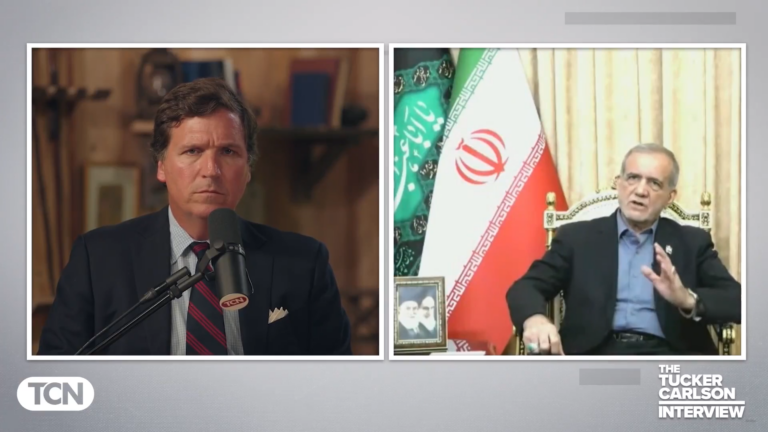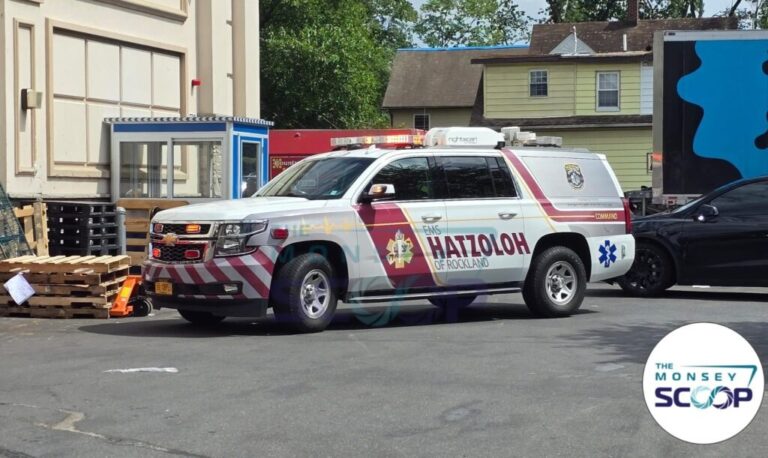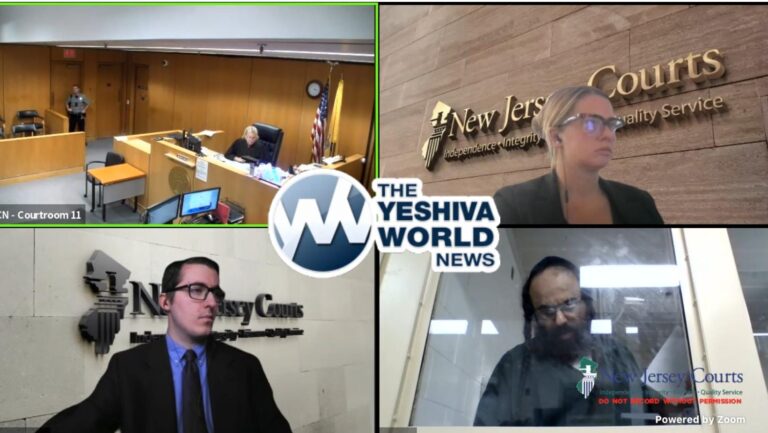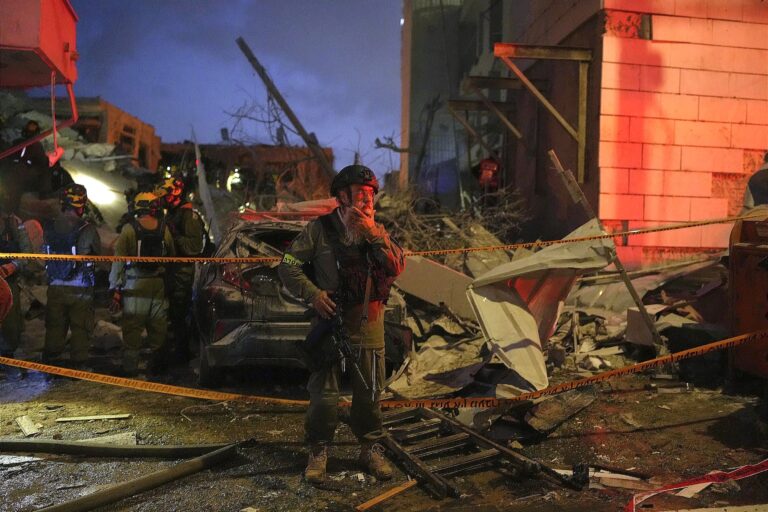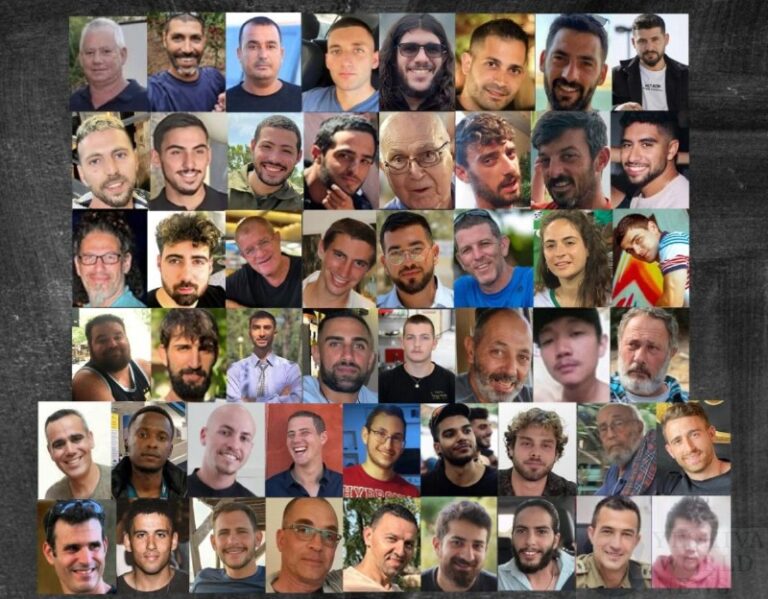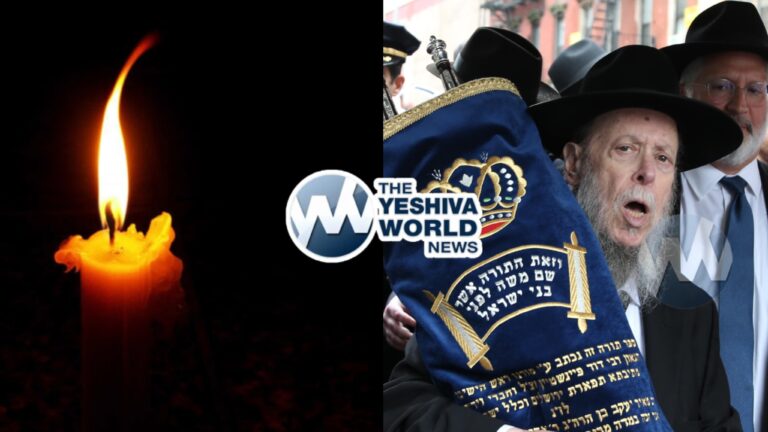 “I was about to leave my house one morning when my three year old daughter asked me, ‘Totty, ven kimst di aheim (when are you coming home)?’ ”. I answered “Im Yirtzeh Hashem.” Upon hearing my response, she began to cry. ‘Why don’t you answer me the regular way?’ Neither of us knew that it would be over a month before I would see her again, and that I might not have even come home at all.”
“I was about to leave my house one morning when my three year old daughter asked me, ‘Totty, ven kimst di aheim (when are you coming home)?’ ”. I answered “Im Yirtzeh Hashem.” Upon hearing my response, she began to cry. ‘Why don’t you answer me the regular way?’ Neither of us knew that it would be over a month before I would see her again, and that I might not have even come home at all.”
The near tragedy that occurred that morning is one that is well known to many in our community. R’ Moshe Friedman, a young man who is well-known for his cheerful disposition and charming sense of humor, held the crowd captivated at BINA’s first annual Borough Park reception, which was held on Wednesday, June 23, 2010 at Paradise Manor. He recounted how a sixty-pound bag of bricks and construction material thrown from the ninth floor of a construction site landed on his head, resulting in severe skull fractures and swelling of the brain. His pulse was lost several times in the ambulance on the way to the hospital, but Boruch Hashem, the reports of his levaya which spread throughout Brooklyn were premature.
Moshe has since gone through many rounds of grueling therapy, and miraculously was able, along with several other brain injury survivors, to share his incredible story of recovery with the guests at BINA’s Borough Park reception. Participants sat spellbound as they listened to several firsthand accounts of the long road to rehabilitation following brain injury, and all that is necessary to ensure that each patient achieves the maximum recovery. Several families who have personally benefited from BINA’s services and share a deep appreciation for BINA’s mission hosted the event. Rabbi Binyomin Eisenberger, who is very familiar with BINA’s work with several members of his shul, played an important role in the development of the event. Rav Shlomo Benzion Herbst and Rav Akiva Ludmir (Pressberger Rov) were also among the rabbonim who graced the reception with their presence.
Today, Moshe is thankful to be living with his family again, enjoying each milestone in his young family’s life. Nothing is taken for granted. And the pricelessness of every skill that most of us have is truly appreciated.
While enjoying a sumptuous buffet, the audience at the event was given an inside look at the challenges faced by thousands of members of our community who suddenly find themselves struggling to regain many of the basic abilities and fundamental skills that most of us take for granted. Each injury involving trauma to the brain is unique and may result in a combination of devastating deficits that requires a specialized plan of therapy. The choices that are made regarding rehabilitation will impact the individual, family and community for many years to come. Frightening yet all too real questions come to mind. Will their loved ones be able to return to their previous roles? Will a child be able to return to school and keep up with his class? Will a mother have the ability to resume her multiple roles at home? Will the family breadwinner lose his or her source of income? The familiar and reliable world is shattered.
Beyond this fear, families find themselves reeling in a whirlwind of terms and concepts – acute, sub-acute, coma recovery – thrust into a situation they know little about yet required to make critical choices at a very vulnerable moment. How can they make an informed decision when they lack the time, resources and experience to research their options? An individual who had contracted meningitis at age 4 described his discovery of BINA, an organization that has researched all the options and is available to help through every step of the recovery process, with the words ‘it was like finding water in the desert’.
Moshe’s enthusiasm for BINA’s role in his recovery was very heartfelt. “BINA was there for us from the very beginning.” Moshe relates, “We were like strangers in a new world, and they helped us with everything we needed.” “Even today, more than three years later, I still go to therapy, and if I ever need anything, I know that I can just call BINA.”
Mr. Friedman also told of a recent visit to the doctor’s office for a checkup. After confirming his patient’s name on the medical chart, the doctor’s face paled. The doctor turned to Moshe and said, “You must have a G-d that is watching over you. Do you know that according to these reports there is no way that you should be standing here today?” Of course, Moshe need not be reminded by outside sources of Hashem’s miracles; he is consciously aware that every living, breathing day that he experiences is its own miracle.
“Every Friday night, I look around the Shabbos table at my children with tears in my eyes and I thank Hashem that I am with them.”
While not all of BINA’s cases may seem as dramatic as Mr. Friedman’s to an outsider, to the person affected, as well as his whole family, the effect of brain injury can be shattering. The majority of BINA’s clients are young people who had no pre-existing risk for brain injury, but may have suddenly had been involved in an accident, fall, or the like. The US Department of Health says that nearly 1 in 50 people in the United States has a lasting disability from brain injury. Even more shocking, the average age of those disabled by brain injury is 35. BINA is the only organization that focuses on the needs of the individuals in our community who are dealing with these injuries, as well as the needs of their entire families.
Another speaker, Reb Shloma Politsek (a well known askan in health issues), spoke of how a close relative with a large family was severely injured in a car accident. After receiving the initial medical care at the trauma center, the doctors told the family to that they would need to find another facility for the patient – immediately. It was Friday afternoon, with only a few hours to go before Shabbos. It was then, Rabbi Politsek said, that they realized how complex and critical the next stages of care were, and how so little information and guidance is available to make the correct choices regarding the patient’s care. Right before Shabbos they learned about BINA Stroke & Brain Injury Assistance, and suddenly all the information and arrangements needed were being organized for the patient and his family. He learned that BINA is the only organization that arranges for the medical care of the patient upon discharge from the hospital, when a patient is unable to return home immediately. Medical referral agencies refer to BINA in such cases, while BINA consults with medical referral agencies regarding the non-rehabilitative aspects of a patient’s medical care.
As someone who is involved in getting the correct medical care for cholim on a daily basis, Rabbi Politsek told story after story of car accidents, strokes, tumors and other situations which result in brain injury and how people soon realize that BINA is the only source for the guidance and help which can enable the best possible outcome.
A video presentation featured several brain injury survivors who have been helped by BINA, including a young man whose wife had a stroke at the age of twenty-one during pregnancy. This man spoke of the upheaval and confusion that they faced as a young couple dealing with a major medical crisis, and the long road to recovery that followed. The video presentation included a clip from Dr. David Biderman, director of the brain injury program at NYU/Rusk, who is quoted as saying: “the great majority of people with significant brain injuries do not get the care that they need to be able to go on with their lives. BINA does what nobody else does…they know what goes on in each facility. Being on the professional side, and knowing that there is nothing else besides this, I can only say that it is a godsend.”
Another survivor from whom the crowd heard on the video presentation was Rabbi Moskowitz, a rebbi in Lakewood who was severely beaten within inches of his life by a criminal with a baseball bat. “We felt like we were on an island – who knows how to deal with a brain injury?” He explained that BINA’s extensive experience, knowledge and guidance enabled them to make the right choices on his road to recovery, so that he could return to teaching his classes in a yeshiva. “When people come up to me in shul, they think ‘you were hit by bat, you had deep cuts, they sewed you up and now you are better.’ They have no idea about brain injury rehabilitation, what went into getting better, and they never will.”
BINA views every case as unique, and therefore works with each family to weigh all options and formulate the plan that is best for them at every stage of the rehabilitation process. From the first call, BINA spends as much time as necessary – for as long as necessary – to ensure that every detail is addressed and every need filled as the family travels on the long road to rehabilitation. Even after successful referrals to inpatient facilities, outpatient centers, therapists and treatment methods, the process of ensuring the best outcome involves extensive follow-up to keep track of progress and resolve any issues that arise. BINA’s staff is always available when a family calls in with questions or problems, even years after the injury occurs. A wide array of services, including support groups and vocational services, fill in needs that are critical for many families.
“’BINA deals with the person, their spouse and children, their family … their whole community, really”, Rabbi Moskowitz said. “To be attacked by a bat is unusual, but everybody gets into a car, and one of the worst dangers of a car accident is brain injury. How do we thank Hashem? By supporting BINA, which helps those who are victims of brain injury.”
The crowd was visibly moved by the speakers and video presentation, with more than one person in the audience wiping away tears.
Mordechai Levovitz, BINA’s director of development, related that “after the video presentation, a man came over to me holding his checkbook in his hand, and with tears in his eyes he said ‘This organization and what they do are simply amazing. I wish I had more money to support it’.”
The guest speaker was Rav Shmelke Leifer, Chusta Rebbe, who inspired the crowd in his inimitable way, and who expressed a heartfelt plea that the community support the work of BINA, which is dedicated to improving the lives of brain injury sufferers, as the way to protect ourselves from this ‘machla’.
BINA’s Expansion Initiative
Rabbi Dovid Glustein, BINA’s executive director discussed BINA‘s new expansion initiative, including BINA’s upcoming Bicycle Helmet Program, through which the need for brain injury safety among our schoolchildren will be emphasized – hopefully in time to prevent future tragedies. All too often, BINA is called in after an accident that could have been prevented, and by educating both young and old regarding safety at work, play, and home, BINA hopes to prevent people from needing their services altogether.
Bentzi Stein, a member of the audience, called the evening a ‘real eye-opener’.
“I’m usually a cynical person, and I didn’t think I knew too many people with brain injuries,” he said. “Before this evening, if you had asked me what a brain injury looked like I would have said someone in a wheelchair, after a car accident. I didn’t realize how many different parts of a person’s life can be affected by a brain injury, how hidden many brain injuries are, and how complex getting the right care is. I’m just amazed how all these people feel that BINA gave them their lives back. I know that I will look at things very differently from now on whenever I hear of any accident resulting in brain injury.”
BINA is located at 1002 Quentin Road, STE 3002 Brooklyn, NY 11223, and can be reached at (718) 645-6400.
For more information, visit www.BINAusa.org
YWN PHOTO LINK: Click HERE for photos by Reuven Kaplan.
(YWN Desk – NYC)

